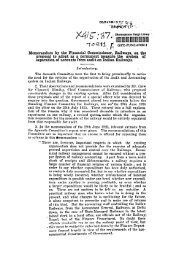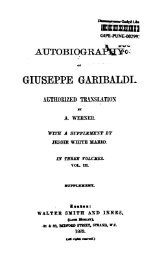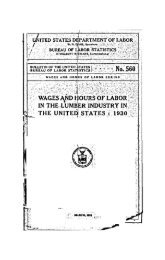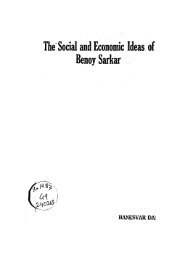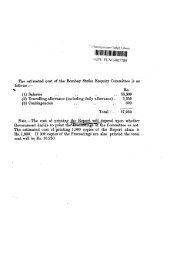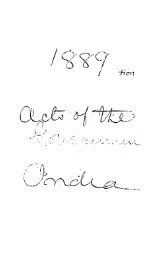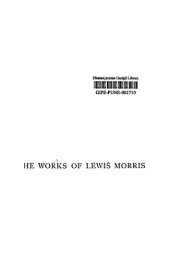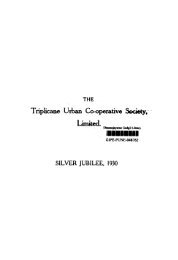You also want an ePaper? Increase the reach of your titles
YUMPU automatically turns print PDFs into web optimized ePapers that Google loves.
®pinitltt<br />
No.,31 Vol. XXIII. Friday, July 3Jst, 1925.<br />
Jlegutered.t tIoe o. P.o .... Ho .. ,."".<br />
PUGI: Fov ..... ,.<br />
UNION PARLIAMENT<br />
~DR. MALAN'S ASIATIC BILL.<br />
Capetown, July 23 (Heuter).-In the Honse of<br />
Assembly to-day, the Minister of the Interior (Dr.<br />
Malan) made an important statement in moving for<br />
leave to introduce a Bill, having for its object .. To<br />
make provision for the reservation of residential<br />
and trading areas in the urban areas for certain persons<br />
ha~ing racial characteristics in common· to<br />
amend the Immigrants' Regulation Act. 1913 'the<br />
Indians' Relief Act, 1914. and the Asiatic Registra.<br />
tion Amendment Act (TransvaaI). 190R. and to<br />
amend or repeal certain laws." ,<br />
The Minister pointed out at the outset that the<br />
introduction of this Bill was the fulfilment of an<br />
Undertaking he made during the last session of Par.<br />
liament about a yellr ago. On that occasion a motion<br />
was introduced by Mr. Marwick, and in the debate<br />
he (Dr. Malan) undertook to go into the whole<br />
Asiatic question during the recess as thoronghly as<br />
he could. and to introduce in the following session<br />
legislation dealing with that problem. lIe was very<br />
sorry he could not have the Bill ready before the<br />
very end of the session. because he realised.<br />
especially after having gone into U. that the Asiatic<br />
question was a very pressing one in this country<br />
(hear, hear). and that the delay would not make the<br />
solution of the question any easier. On the other<br />
hand. he was not S(lrry that it was impossible to<br />
carry this Bill further at this late stage. because<br />
during the recess the country as a whole would<br />
have the fullest opportunity of knowing what the<br />
policy of the Government was with regard to the<br />
Alliatic problem. He personally and the Government<br />
would certainly value criticism which might<br />
be brought forward in connection with this Bill,<br />
and he would be glad to adopt any helpful suggl'Stions<br />
that might be'made during the recess (hellr,<br />
hear). In his opinion the Asiatic question. like the<br />
Native question, was a problem. not for one parti.<br />
cular Party, }Jut for the whole country (hear, hear).<br />
and a question which should be held as far as<br />
possible out of the arena of Party strife. (Hear,<br />
hear.) He did not propose to make a second read·<br />
ing speech, seEling that the Bill was not in the<br />
hands of the members. but wished to make a few<br />
remarks ,of a gl'neral character.<br />
In the first place, as members would see when<br />
they came to study the Bill. it certainly would not.<br />
satisfy the extreme sections of the country. In<br />
thia'Bill he had tried to steer a safe and sane middle<br />
couTse. The radical element in the counbly would<br />
certainly think that the Bill was too weak and<br />
moderate, and on the other hand the element which<br />
was half·hearted or weak would certainly regard<br />
the Bill as going too far. as to radical. also that to a<br />
certain extent it would be oppressive. The Bill<br />
frankly started from the general supposition that the<br />
Indians as a race in this country were an alien<br />
element in the population (hear. hE'ar), and that no<br />
solution of this question 'would be acceptable to the<br />
country unless it resulted in a very considerable reduction<br />
of the Indian population (hear, hear). but<br />
on the other hanS, the method of dealing with this<br />
question would not be employment of any forcihle<br />
means, but wouIa consist of the application of the<br />
SAFE AND SANE MIDDLE COURSE<br />
Indian to leave the country. The Bill to a certain<br />
extent followed well-known lines, as in the Bill<br />
introduced by the late Government. but it went a<br />
good deal further than that measure in the direction<br />
of carrying out the recommendations of the Asiatic<br />
Inquiry Commission.<br />
In this Bill, continued the Minister. they were<br />
dealing not only with the residential and commercial<br />
~egregation, but wlth the land ownership, especially<br />
]n Natal. (Hear, hear). In addition, the Bill pro·<br />
posed in certain respects to amend the Immigrants<br />
Regulation Act. They found that there was a eonsldera~le<br />
influx of Indians still going on, especially<br />
of Indlan women. and the Amendments which were<br />
proposed in this BIll would go very far to put an<br />
effective stop to that influx. There was one omission<br />
that would certainly be noted by all members who<br />
read the Bill, and that was that It did not deal with<br />
the issue of trailing licencE'S. By another Bill which<br />
was before Parliament, the principle of uniformity<br />
of licences had been introduced, but that uniformity<br />
o,nly consisted in fixing the amounts, and the issue<br />
of licences to particular persons remained as before.<br />
in the hands of the Provincial Administrations, and<br />
so also with regard to the issue of trading licences<br />
to Asiatics. Dr. Malan further remarked that in<br />
this Blll he had tried to respect- as far as possible the<br />
susceptibilities of the Indian population and following<br />
the example of other legislation, it did ;ot mention<br />
Asiatics as a class at all. except where this had<br />
to be done in cases where reference was made to<br />
existing laws which did specifically 'refer to them as<br />
a class. In conclusion. the Minister said he wished<br />
to make himself quite clear on two points. The<br />
first point was that the introduction of this Bill<br />
must not be taken as closing the door to any negotiations<br />
or communications which might pass between<br />
the Union Government and the Government of India<br />
in regard to the Indian question. The Union<br />
Government had been approached by the Govern·<br />
ment of India with a view to holding a round-table<br />
conference on the treatment of Indians in South<br />
Africa. These negotiations had not yet closed, and<br />
they had taken a very definite course. So far as<br />
taking the introduction of this Bill as closing the<br />
doors between the two Governments, he took it that<br />
on the contrary the 'Statement of the Government's<br />
Asiatic policy as embodied in this Bill would very<br />
materially hpl~any further negotiations between<br />
the two Governments.<br />
RE'plying to an interjection by General Smuts, the<br />
Minister said he did not think it would be in the<br />
public interest for him to make any statement at<br />
present in r('gard to the negotiations hitherto.<br />
• Proceedmg, Dr. Malan said the second point he<br />
wished to emphasise was that whenever the Bill he<br />
was no\" introducing was passed it would take effect<br />
from August of this year. His reason for this was<br />
t3at the Bill respected certain vested rights. and if<br />
this step were not taken he was afraid there would<br />
be a general scramble among tlie Indian population<br />
for the creation of vested rights. and in that way the<br />
problem which they were seeking to solve would be<br />
made infinitely more complicated. Therefore th~



